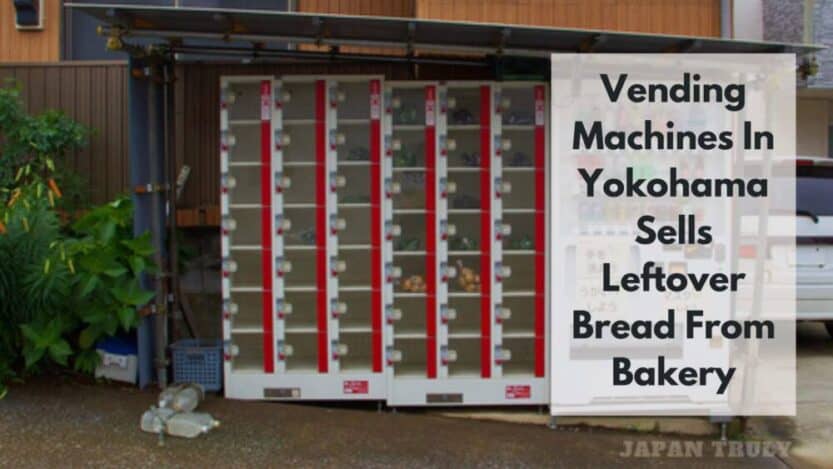Check out these vending machines in Yokohama sells leftover bread from bakery for 30% discounted prices!
In Yokohama, Japan, a novel approach has been taken to address the perennial issue of food waste, transforming it into an opportunity for both environmental conservation and consumer savings.
Local bakeries, particularly one known as Enmichi Pan, which previously had to dispose of unsold bread by the day’s end, have devised an ingenious solution.
This initiative has attracted attention across the nation as a testament to practical sustainability.

At the close of business, around 7 p.m., these establishments reduce their unsold bread items by at least 30%, repackaging them for sale in innovative locker-style vending units at Kannai Station along the Yokohama Subway Line.
These specialized lockers, aptly named SDGs Station Lockers, cater to the eco-conscious and economically savvy bread lovers who eagerly await the chance to snag a discounted bakery item.
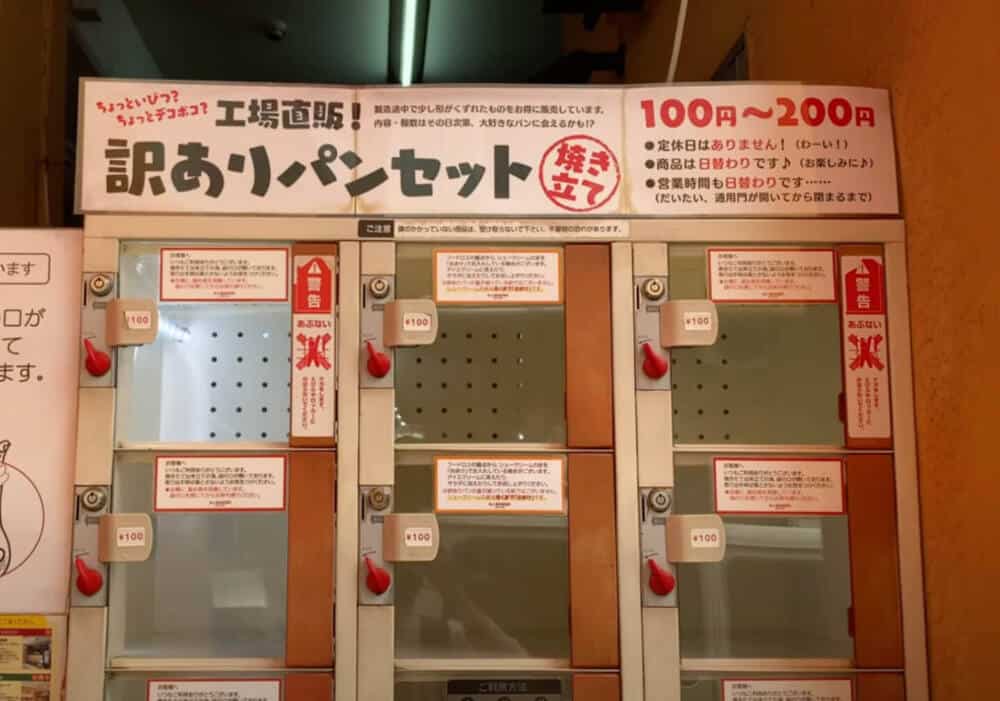
Highlights:
- Food Loss Reduction: Approximately one to two tons of potential food waste averted annually.
- Community Engagement: Initiatives are embraced by consumers, driving a new culture of food consumption.
- Food Systems Innovation: Local entities leverage locker vending machines to dispense discounted bread, marking a shift in food retail strategy post-COVID-19.
- Sustainability Goals Alignment: Efforts align with the Sustainable Development Goals (SDGs), aiming to reduce greenhouse gas emissions from food waste.
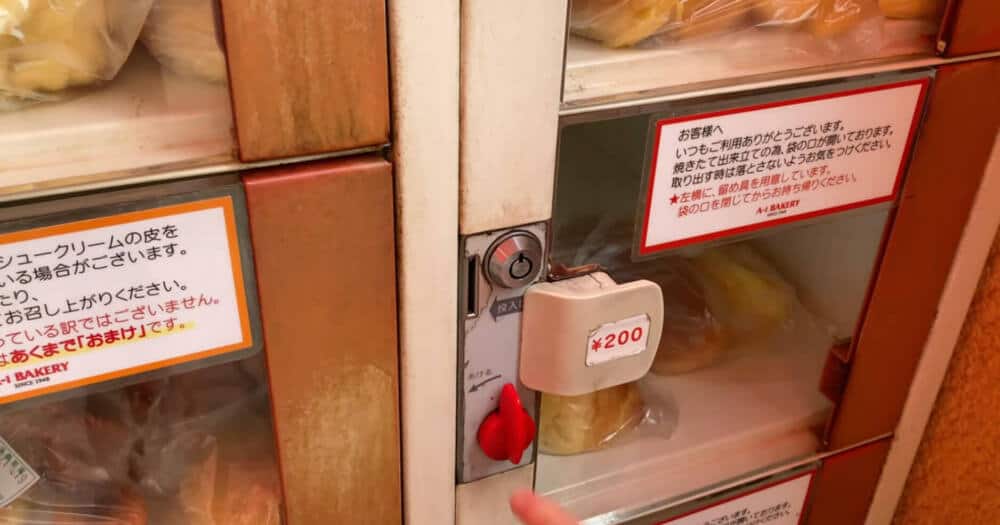
Buyers who frequent the spot not only benefit from the discounted fares but also participate in a larger movement towards reducing food loss, a significant contributor to greenhouse gas emissions at both retail and consumer levels.
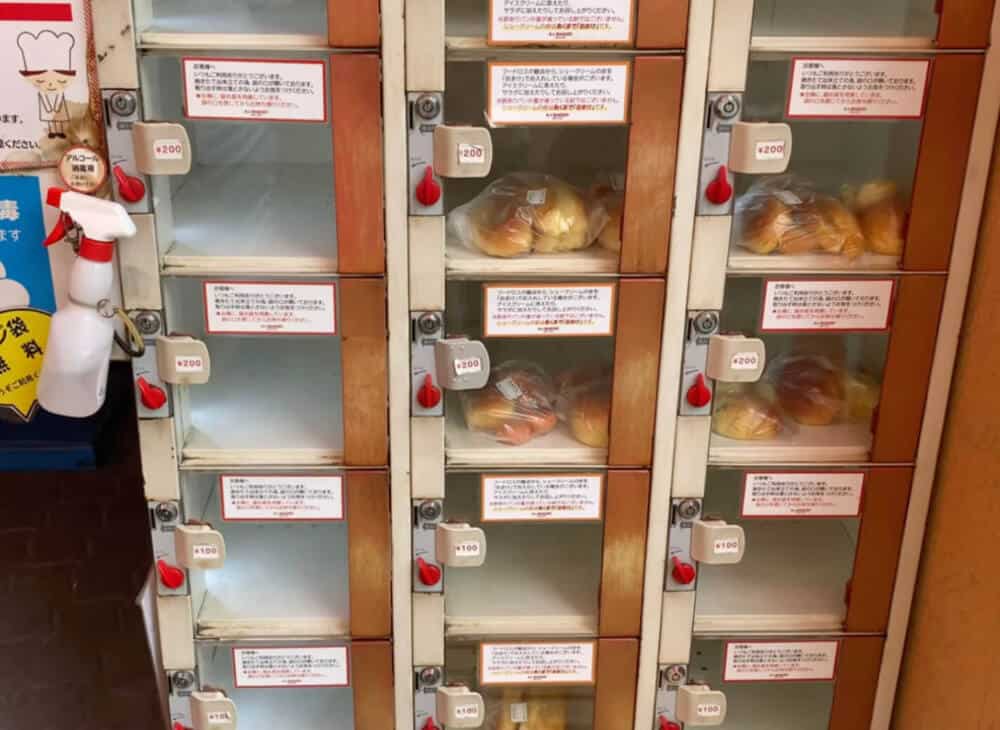
Furthermore, the response from the community has been mixed but generally favorable, with enthusiastic calls for the expansion of such a program to other types of perishable goods.
Page Contents
How Do These Vending Machines In Yokohama Help Reduce Food Waste?
Yokohama’s endeavor presents a template for other businesses to emulate, potentially leading to a broader reduction in food waste.
The success of the vending machines in reducing food waste at Kannai Station may inspire additional local shops to follow suit.
In light of concerns regarding food safety, it is essential to understand that both businesses and buyers operate within a framework of trust and compliance.
These businesses, while offering bread beyond the sell-by date at discounted rates, maintain a vigilant stance on safety and hygiene.
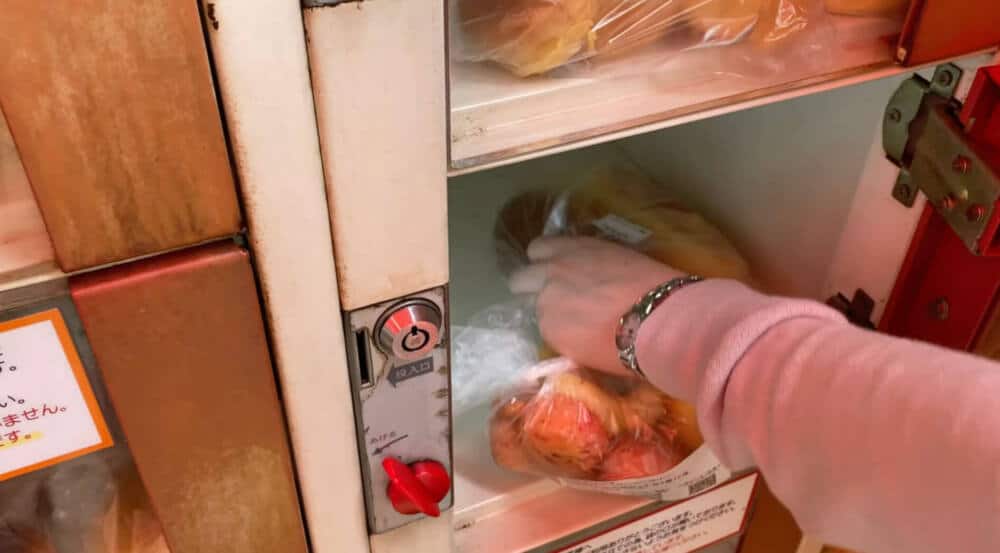
The anticipation is that other businesses within the community may soon capitalize on the SDGs Station Lockers, thereby multiplying the impact on food loss reduction and increasing the availability of eco-friendly discount deals.
The concept, embraced by Yokohama city and its residents, serves as a beacon of sustainable commerce.
It could augment food systems to be more resilient and ecologically sound, showcasing how minor changes at a local level can lead to significant environmental benefits.
What Efforts Are Being Made in Yokohama to Curb Food Waste?
Yokohama has introduced innovative approaches to minimize food waste, one of which includes selling unsold bakery items through vending machines.
These machines are strategically placed to provide easy access to discounted bread, preventing perfectly good food from being discarded.
How Does the SDGs Station Locker Initiative Promote Sustainability?
The SDGs Station Lockers project emphasizes sustainability by repurposing unsold bakery bread.
The initiative helps feed more people, reduces bread waste, and provides an economical option for consumers, aligning with the goals of reducing hunger and promoting responsible consumption.
What Is the Environmental Toll of Wasting Bakery Products?
Discarding bakery items unnecessarily contributes to environmental degradation. This includes the wasted resources used in production and the increase in greenhouse gases from decomposing food waste.
Effectively managing and reducing bread waste, consequently, lessens this environmental burden.
How Is Japan’s Food Waste Recycling Law Impacting Companies?
The food waste recycling law in Japan compels businesses to be more accountable in managing their food waste. They must now either reduce waste production, recycle, or convert waste into animal feed, imposing a direct effect on operational practices.
What Approaches Do Retailers Take to Align with the Food Loss Reduction Act?
Retailers across Japan are adopting various methods to align with the Act on the Promotion of Food Loss and Waste Reduction. This includes revising sell-by dates, offering discounts for near-expiry items, and repurposing food parts that are typically discarded.
Which Strategies Are SDGs Station Lockers Using to Market Unpurchased Bread?
SDGs Station Lockers apply a direct strategy to market unsold bread: offering it at a discounted price through convenient vending machines. This approach not only reduces waste but also ensures access to affordable bread for the community.
My writing focuses on the various aspects of Japanese lifestyle, from traditional tea ceremonies and flower arrangement to modern fashion trends and pop culture. Through my articles, I aim to share my passion for Japan and provide readers with a glimpse into the rich and diverse world of Japanese culture.
I believe that the key to understanding Japanese lifestyle is to appreciate the balance between tradition and innovation. While Japan has a rich cultural heritage that dates back centuries, it is also a country that is constantly evolving and embracing new ideas and technologies.
Whether you’re interested in learning about the latest fashion trends in Tokyo, or want to explore the ancient art of calligraphy, my writing will take you on a journey through the many facets of Japanese lifestyle. So join me as we explore the beauty and complexity of this fascinating culture together!


